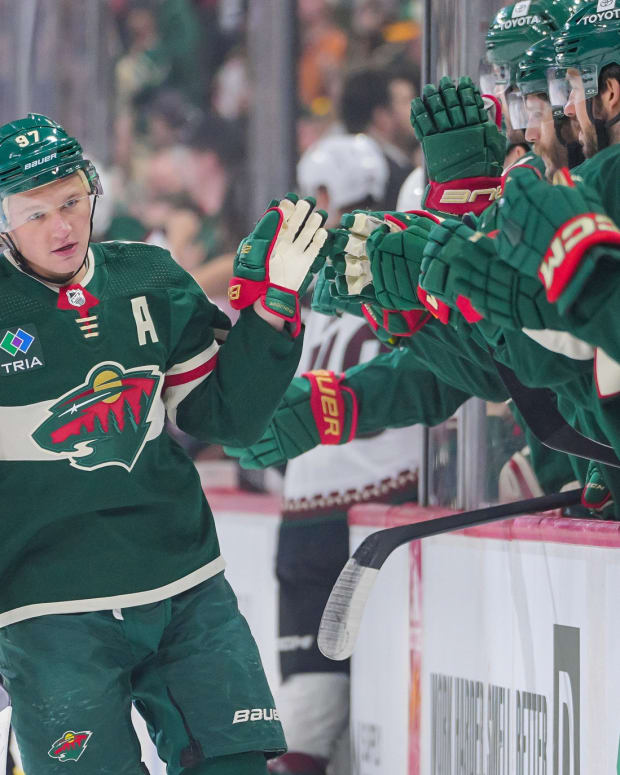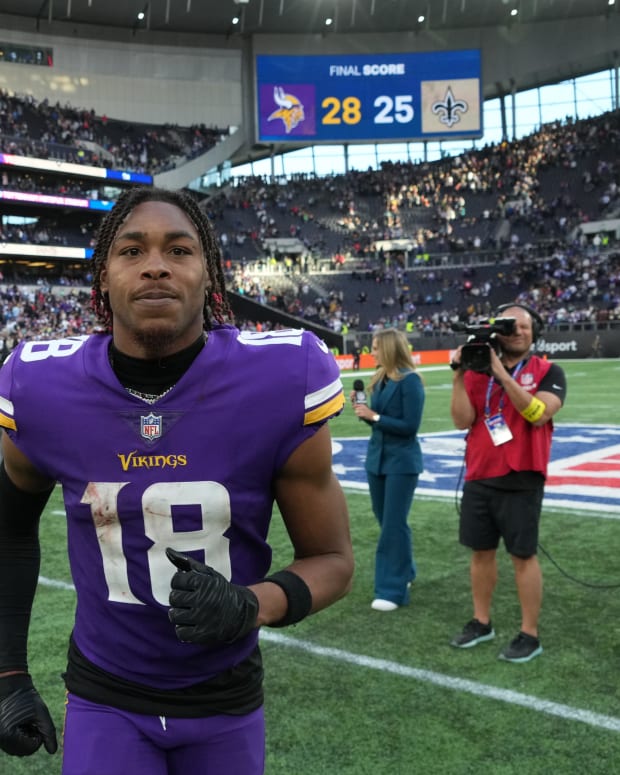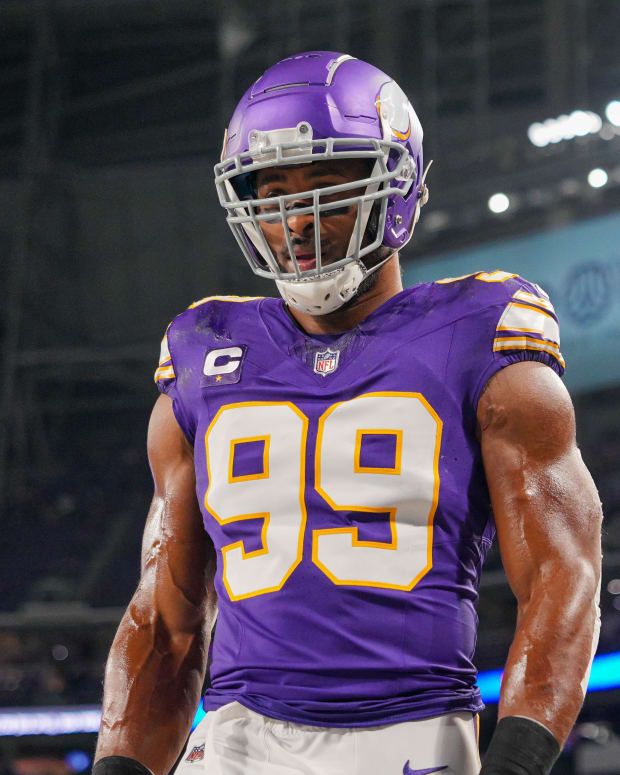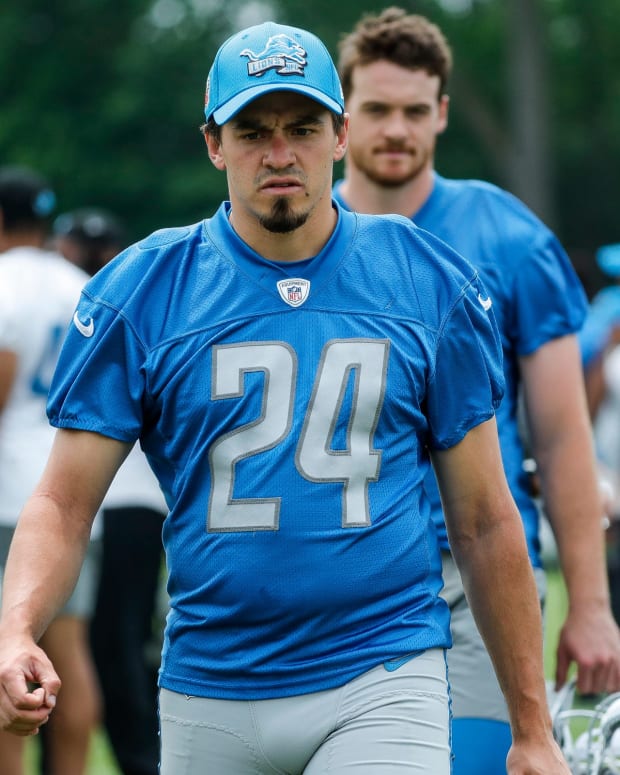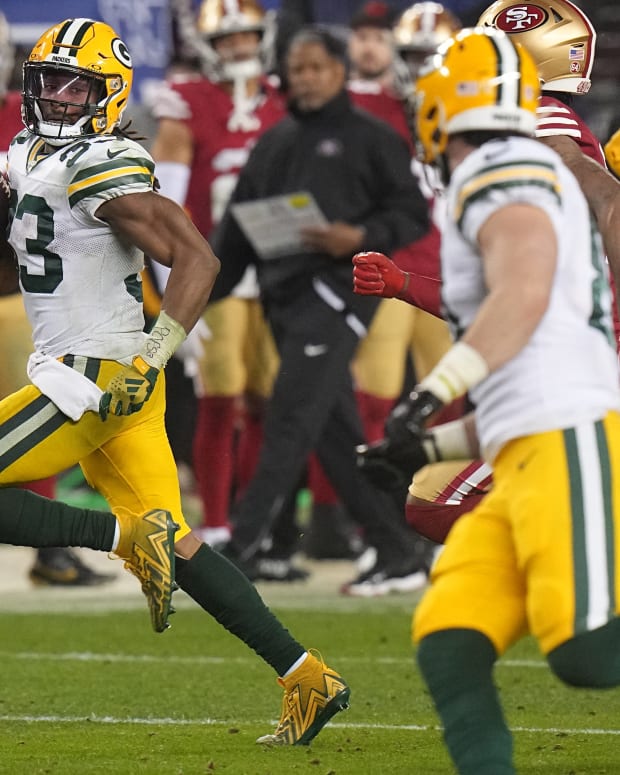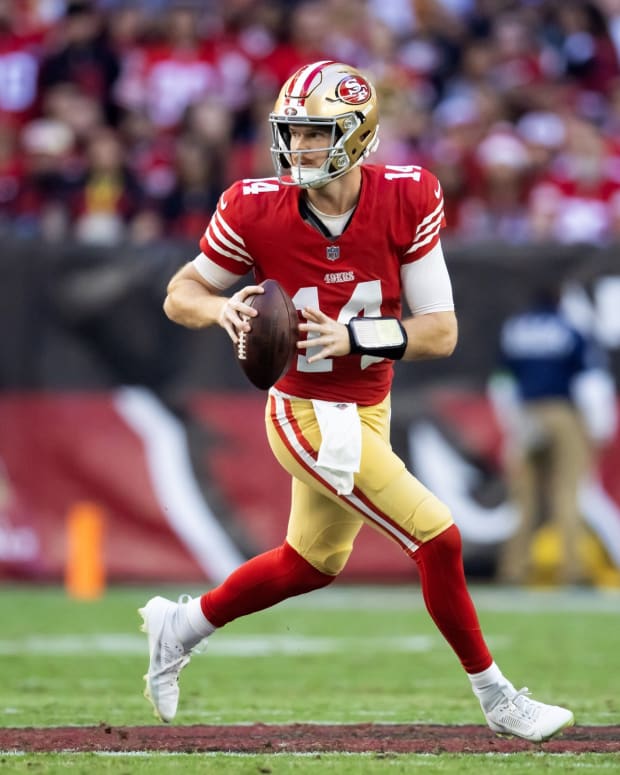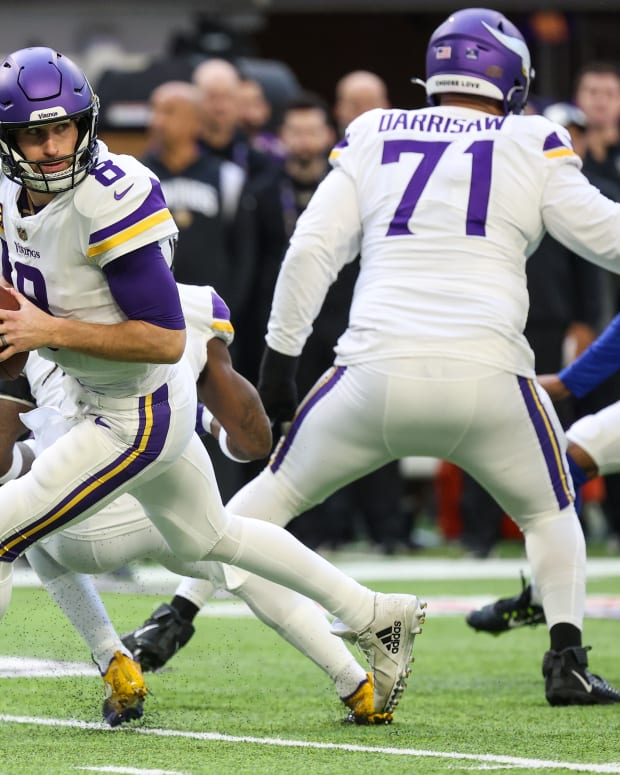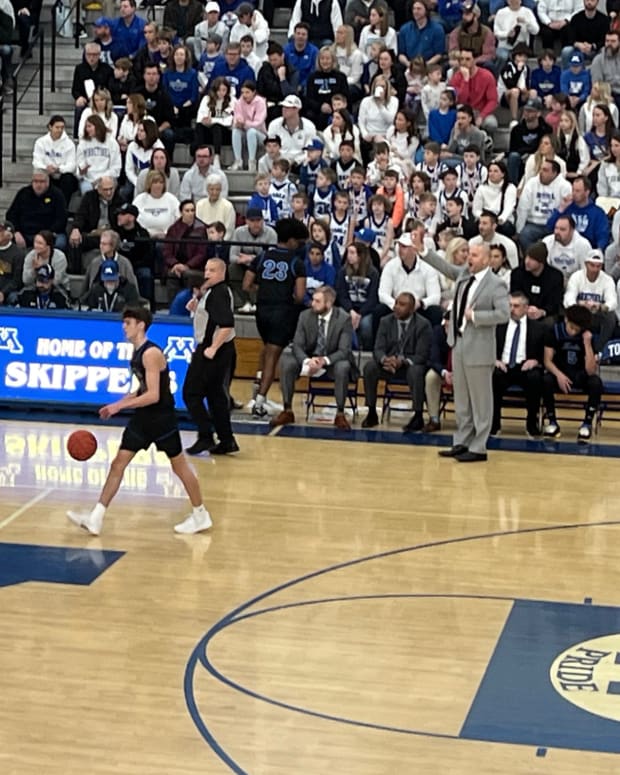Vikings get future flexibility in Danielle Hunter's new deal
We expected the extremes, but the truth ended up being in the middle with Danielle Hunter’s contract situation.
The Minnesota Vikings signed Hunter for one year, $17 million with an additional $3 million in incentives on Sunday morning, ending a short-lived "hold-in," in which Hunter had been inside TCO Performance Center but not practicing in the early days of training camp.
Hunter skipping the start of camp appeared to be the edge rusher digging his heels in toward getting the long-term extension that has proven elusive for him over the last three years. In the 2021 and 2022 offseasons the team put a band-aid over his unhappiness, tossing a little more cash his way and saying, "we’ll talk next offseason." So it was surprising to wake up Sunday morning, just a few days into camp, and see that Hunter allowed the Vikings the we’ll-talk-next-year option again.
His new contract is much more along the lines of second-tier pass rushers like Emmanuel Ogbah and Alex Highsmith rather than TJ Watt or Maxx Crosby. From his perspective, there is risk/reward involved in taking that. If he ends up having a huge season and hits the free agent market next year, he is likely to land a mega contract somewhere. But he missed 2020 due to a neck injury and now doesn’t have anything guaranteed after this year if something like that should happen again.
Hunter’s side must have felt that pressuring the Vikings throughout the month of August to either sign him up long term or trade him to a team that would give him a massive deal was not going to result in either of those two outcomes. Otherwise, why do this now when they could have used the remaining leverage they had?
From the Vikings’ angle, the move is thematic with their “competitive rebuild.” They are a much better defense with Danielle Hunter than without Danielle Hunter and I’m sure Brian Flores is sighing with relief today that he has a double-digit sack man as opposed to a handful of young rotational rushers and Marcus Davenport.
The Vikings have a much better chance with Hunter to greatly improve their defense from last year’s 27th rank in points allowed. Pair that with an offense that features the world’s best receiver, a top-notch tight end and quality veteran quarterback and it seems reasonable that they could beat out the wobbly NFC North for another division title.
But they did not do it at the cost of their future. Signing Hunter to a TJ Watt-level contract would have come along with major risk that either his injuries could crop up again or production fade as he enters the latter half of his career. It would also have squeezed them in terms of cap flexibility. There’s no easy way to hide a $25 million per year type deal, no matter how good your in house-cap expert is. With Jefferson, Hockenson and Darrisaw (next year) extensions on the horizon, there is only so much money to go around before the rest of the roster suffers.
Not that the Vikings have to let Hunter go. If he has another big year and remains healthy, they may decide to give him the extension he’s dreamed about.
Speaking of which, if things go completely sideways, they could trade him at the deadline for good return. Heck, they could still do it later this afternoon if they got a good enough offer. This is all about the Vikings giving themselves more flexibility.
While this may have been the best "competitive rebuild" option, those with binoculars who can see far into the future might argue that it’s not the best approach overall. There is a worst-case scenario where the defense doesn’t improve, the Vikings win eight games and we all ask if they would have been better off getting whatever they could have for Hunter.
Trading Hunter now would have given them return that could help in terms of trading up for a quarterback in next year’s draft. ESPN’s Jeremy Fowler reported that they were exploring potential trade options recently. Was there a chance to get a second-rounder for Hunter? We may not ever find out what other teams were offering but if that comes to light there may be a question of whether that was a better idea than having him stick around for another year only to leave once 2023 is over.
If the offers were underwhelming — particularly because the team acquiring Hunter would have to extend him — then it makes sense to stick with the potential comp pick. That’s nearly a lock to be a third-round pick in 2025. That doesn’t really move the needle but when paired with the cap space, it gives the Vikings some compensation for letting him go.
In the end, the Hunter contract story does not feel completely resolved. But while we’re always looking through the big-picture lens, it’s certainly important to 2023 that he’s here. Judging by the vibrant start to camp in which the defense has seemed to connect instantly with Flores and Jefferson putting on a highlight show every day, Hunter’s return only adds another boost of energy to an already energetic start for Kevin O’Connell’s club in Year 2.
